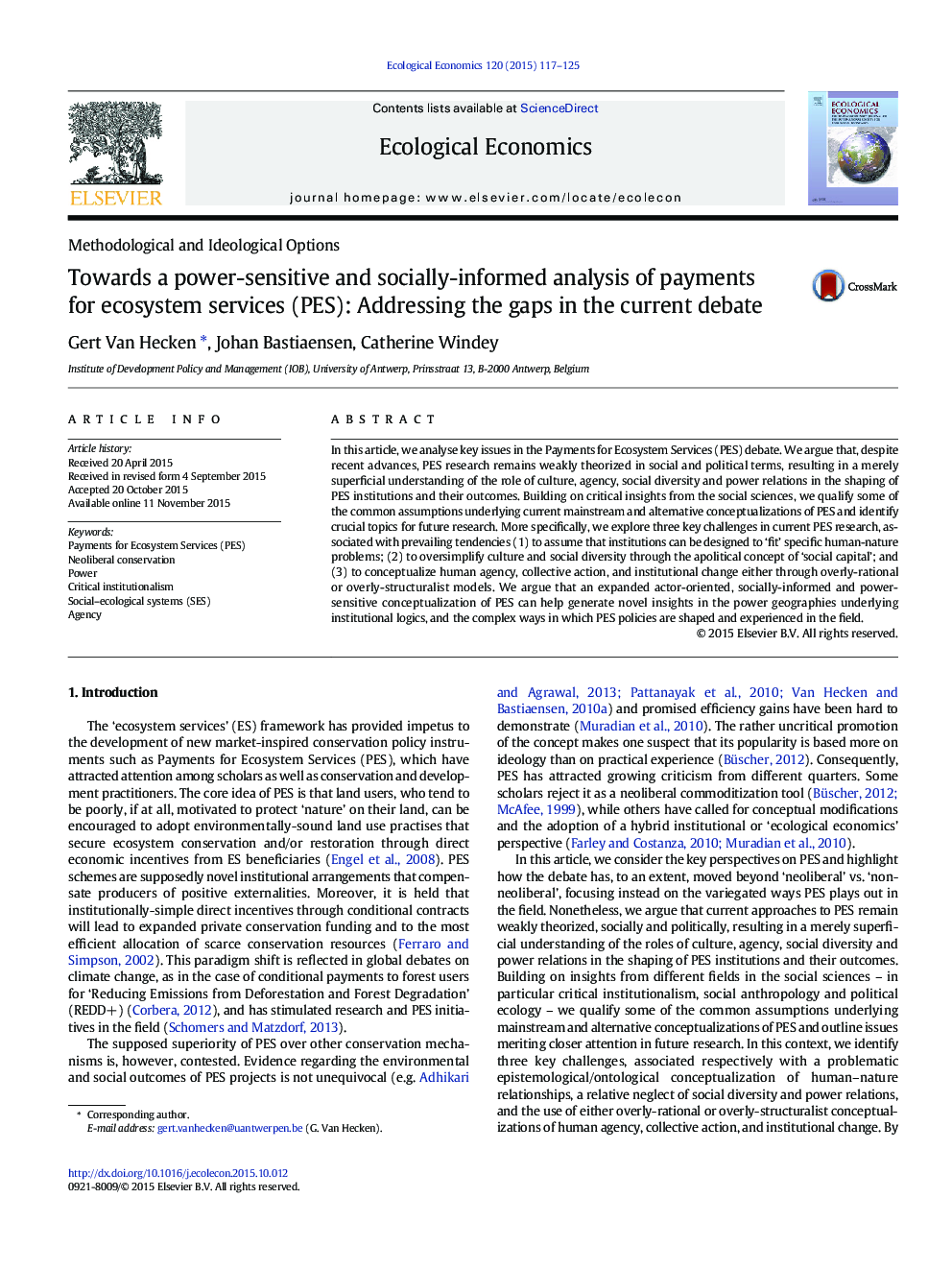| Article ID | Journal | Published Year | Pages | File Type |
|---|---|---|---|---|
| 5049211 | Ecological Economics | 2015 | 9 Pages |
â¢We discuss the main issues in the Payments for Ecosystem Services (PES) debate.â¢We qualify common assumptions underlying different conceptualizations of PES.â¢We argue that PES research remains weakly theorized in social and political terms.â¢We offer an expanded actor-oriented and power-sensitive conceptualization of PES.
In this article, we analyse key issues in the Payments for Ecosystem Services (PES) debate. We argue that, despite recent advances, PES research remains weakly theorized in social and political terms, resulting in a merely superficial understanding of the role of culture, agency, social diversity and power relations in the shaping of PES institutions and their outcomes. Building on critical insights from the social sciences, we qualify some of the common assumptions underlying current mainstream and alternative conceptualizations of PES and identify crucial topics for future research. More specifically, we explore three key challenges in current PES research, associated with prevailing tendencies (1) to assume that institutions can be designed to 'fit' specific human-nature problems; (2) to oversimplify culture and social diversity through the apolitical concept of 'social capital'; and (3) to conceptualize human agency, collective action, and institutional change either through overly-rational or overly-structuralist models. We argue that an expanded actor-oriented, socially-informed and power-sensitive conceptualization of PES can help generate novel insights in the power geographies underlying institutional logics, and the complex ways in which PES policies are shaped and experienced in the field.
